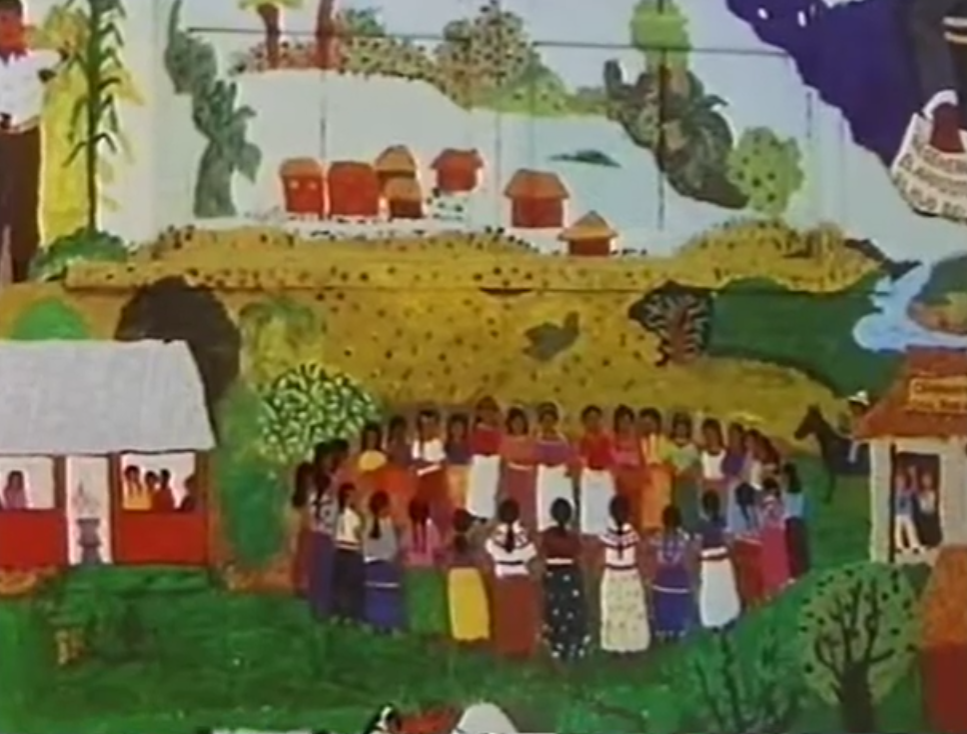by Raúl Zibechi
I’ve spent months touring the continent: Mexico, Colombia, Rio de Janeiro, Ecuador, Bolivia, Argentina. In all of them, similar situations are directly observed, which are combined with the data coming in through other channels. In broad strokes: the dismantling and deterioration of social relations; state, parastatal and narco-violence; the great difficulty for movements and peoples to build.
Perhaps this breakdown is the way in which the systemic storm is presented to us, aggravated by climate chaos and the collapse of nation-states. It is not easy to establish a comprehensive narrative, but there are commonalities across geographies.

The reasons for the breakdown of our societies are varied, encompassing both the material and the spiritual.
Poverty grows in a permanent and constant way, a consequence of the voracity of the most concentrated capital that leads the population to unsustainable living situations. Meanwhile, governments only manage poverty with social policies that seek to domesticate the working classes and indigenous and black peoples.
Accumulation by dispossession/fourth world war against the peoples is part of this pauperizing model but, above all, it explains the violence, forced displacements, land grabbing and the occupation of territories by armed gangs that, by attacking the people, favor the plans of capital.
Drug trafficking is one of the forms assumed by the collapse of the system, but we must be clear that it is used by the powerful against any organized movement, as the experiences of Colombia and Mexico show. The narco was not directly created by capital and the states, but once it emerged they have learned to direct it against our organizations.
The progressive governments that have governed all the countries I am visiting and are now doing so in Colombia, accelerated the decline by deepening extractivism but, at the same time, by disorganizing the movements. They did this in a double way: appropriating their discourse and their ways of doing things, while launching armed gangs against the same peoples and social sectors that they intend to pacify with social policies.
Both policies are complementary and are aimed at facilitating the entry of speculative capital into the territories of the peoples, to turn life itself into a commodity.
The phase of disintegration of our societies, of the connections between those below and entire peoples, is entering an acute phase, impacting even rural communities that previously seemed almost immune to these destructive and violent ways of capital and states, which work side by side to fulfill these objectives. We are dealing with structural and systemic characteristics of capitalism, not with punctual deviations.
Insofar as we are facing relatively recent processes, the peoples and social sectors have not yet found ways to stop and reverse the destruction. On this point, some considerations.
The first is to note the seriousness of the situation, the high degree of decomposition not only of the organizations, but also of the social bases in which they are referenced and take root. The panorama can be summarized as follows, in almost all regions: societies and communities in a state of decay, and organizations threatened or co-opted by the system. Both developments are enormously destructive.
The second is the reflection on the pathways to continue being what we are: peoples and social sectors that resist and build. The EZLN has adopted peaceful civil resistance to confront the armed gangs, and to continue building the new world. It is a very difficult path, which requires will and discipline, constancy and the capacity to confront violence and crimes without falling into individualistic positions.
I believe that the ways adopted by Zapatismo, undoubtedly agreed upon and decided by the support bases, can serve us as a reference throughout Latin America, because we face similar problems and because we must draw conclusions from the wars decided by the vanguards, which cost the lives of hundreds of thousands of first peoples, blacks, peasants and working class sectors.
Not repeating mistakes is wisdom. On various occasions, the EZLN has given as examples the wars of Guatemala and El Salvador. In those, and this is by my account, the positions of the the vanguards did not benefit the people, who paid for decisions they did not make with thousands of deaths, to later enter into peace processes without being consulted, but which safeguarded the interests of the leaders and cadres.
I understand that those of us from below, owe it to ourselves in these difficult moments to have a profound debate about the ways to confront the war from above. Without giving up or selling out, but taking the paths that allow us to avoid the war and continue building without falling into provocations.
This article was published in La Jornada on August 12, 2022. https://www.jornada.com.mx/2022/08/12/opinion/016a1pol
English interpretation by Schools for Chiapas.
